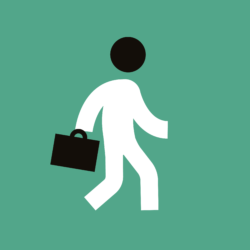The start of the Intelligent Cities Challenges (ICC), an EU project to boost the uptake of new advanced technology by EU and international cities, coincided with the outbreak of the COVID-19 pandemic. The European Commission and consortium, led by Technopolis Group, managed to adapt the project and orient the support and advisory service delivery towards the new needs of cities as a consequence of COVID-19.
The Intelligent Cities Challenge wants to get small and medium-sized cities out of their comfort zone. Over 2 years, participating cities go through several phases of designing and implementing new city strategies to integrate digital and non-digital technology-driven solutions at a local level. To do so, they get support from leading national and international experts and inspiration from renowned mentor cities’ best-practice cases all while building collaborations with other cities.
The project by the European Commission’s DG GROW and EISMEA is designed to help cities that aren’t usually known as technology frontrunners leapfrog ahead into the future. The project partially relies on the experience from its predecessor, the Digital Cities Challenge, but comes with an increased budget to support a growing number of cities – a total of 136 core and mentor cities take part. The aim is to pick up technological solutions that help foster sustainable and green growth, enhance skills and support local SMEs and start-ups.
So far, so exciting? Well, it’s just that cities could apply to take part in the project from February 2020 – right when the COVID-19 crisis reached Europe. Cities suddenly had different priorities than writing convincing pitches on why they deserve a spot in the challenge. The consortium, led by Technopolis Group, supported the European Commission in responding to the changing circumstances and needs and came up with a package of solutions and adaptations.
COVID-19: Changing needs, adapted support
In the ICC, cities play an active role. They are required to put in the effort to create tech-driven strategies and to implement solutions with the support and advice they receive over the entire duration of the project. To allow cities to compile competitive applications in addition to dealing with the pandemic, the application period was extended, the initiative’s focus and dissemination efforts were targeted towards supporting COVID-19 recovery as a first step.
Secondly, cities in Europe and beyond were – and are – encouraged to share best practices on tech-driven solutions in the fight against COVID on a dedicated database on the ICC’s website. Other cities and stakeholders can draw inspiration from such best-practice cases to come up with solutions that fit their local context best. Examples include disinfection robots for hospitals that clean hospitals without exposing staff to unnecessary risks or a network of volunteer mask sewers.
As a third immediate measure, we organised a series of webinars on how cities can respond to the pandemic using tech-based solutions. The speakers of the event were drawn from European and International cities but also from the project’s consortium, which is made up of leading consultancies. The webinars were open to any city representative or stakeholders, which led to a big turnout from across Europe, with over 400 registrations for some of the events.
The COVID-19 crisis didn’t only influence the start of the project; the pandemic is also leaving its mark on the overall methodology of the ICC. Cities were supposed to receive continuous face-to-face advice from the project’s more than 60 lead and 150 thematic experts, and the “city lab” events were meant to take place in-person. Additionally, informal knowledge exchange and collaboration between cities were planned to take place at the side-lines of the events. Social distancing rules still make in-person events largely impossible. This is why Technopolis Group is using a large variety of digital tools and approaches to recreate the “city labs” online.
From crisis response to blueprint
This adapted methodology is proving appealing to the participating cities and experts, who are making the project thrive with their energy and enthusiasm, regardless of the circumstances. The strong commitment on both sides makes it possible to deliver tailor-made advice for the local context and challenges of each city.
As the initial adaptation to the pandemic is gradually pushed to the background by the need to recover from the crisis, the ICC is launching several initiatives to “build back better”. One example is the Tech4Good marketplace hosted on the ICC website where cities can see what technology-driven solutions other cities have already implemented and draw inspiration from for their own sustainable and digital recovery strategies. Secondly, a reskilling guide will be published in the coming weeks with guidance for cities on how to facilitate training programmes in sectors with increasing job opportunities. Additionally, the Local Green Deal Blueprint will be presented at the upcoming Mayors Summit on the Local Green Deal. This blueprint will guide cities on how to design and implement their own city-level deals.
The ICC adaptation hasn’t only been well received by the cities but also by decision-makers. In the context of the economic recovery from the current crisis, the European Commission is using the ICC as a platform to raise awareness of further funding opportunities among cities that don’t have much experience in accessing EU investments.




